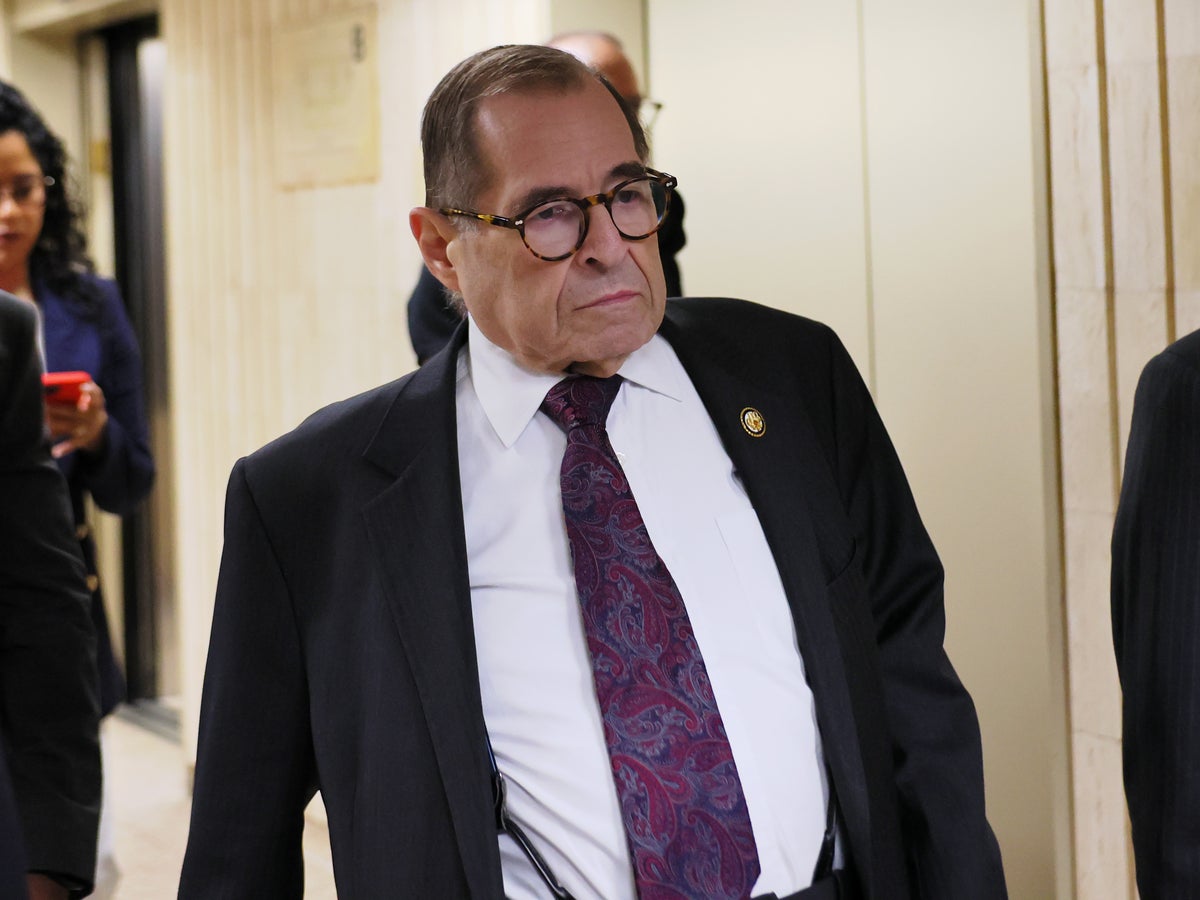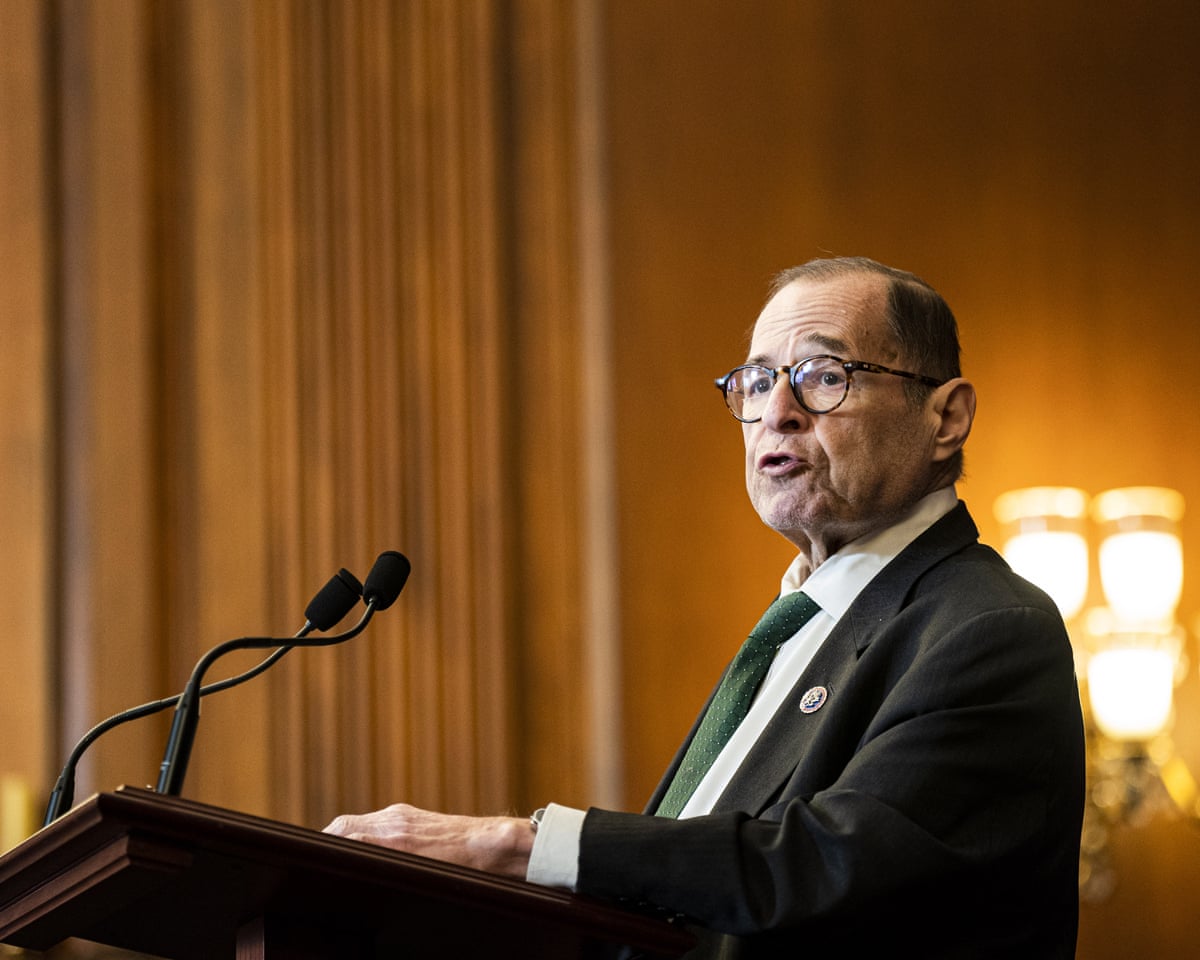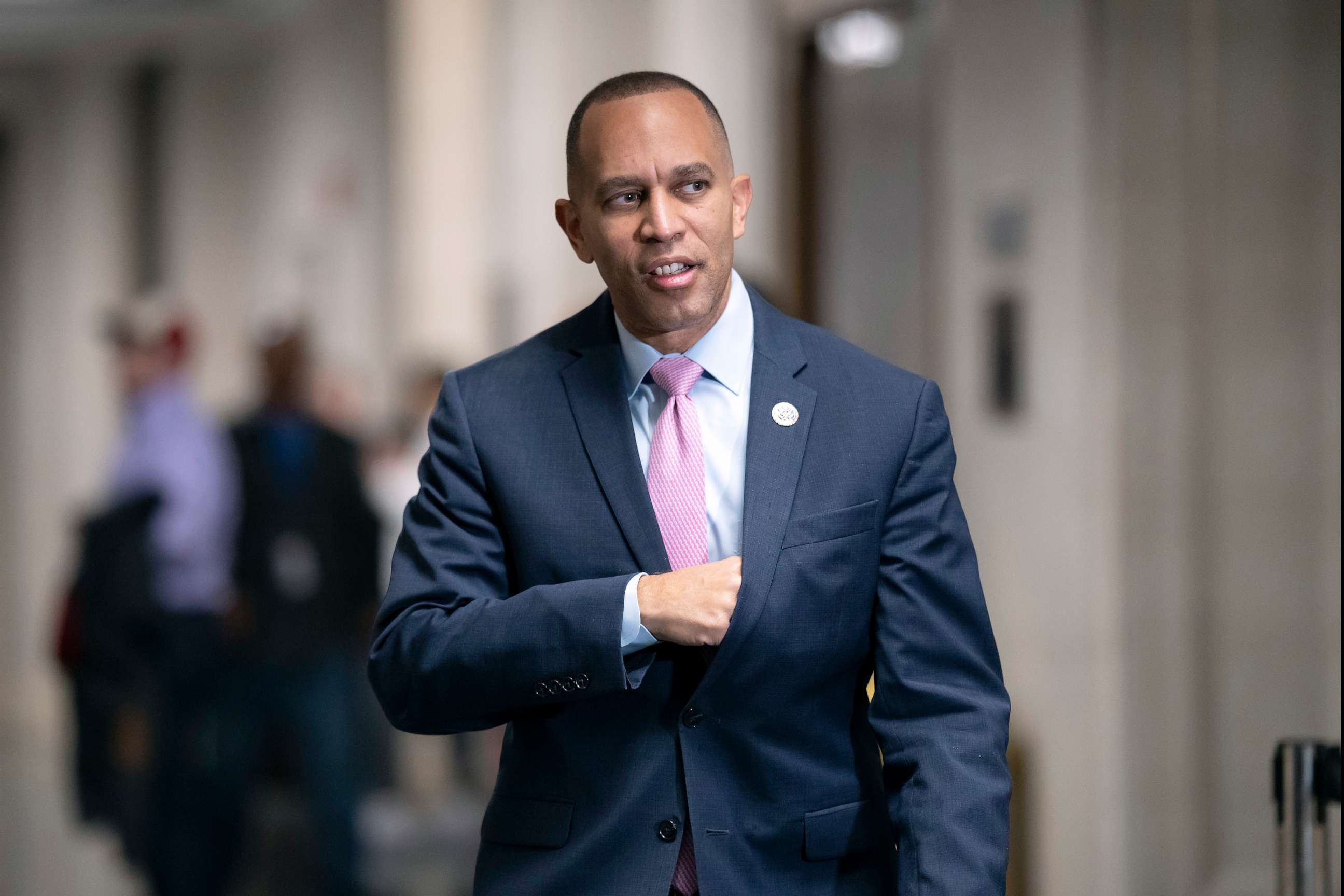
Representative Jerry Nadler, one of the most prominent and longest-serving Democrats in Congress, announced that he will not seek reelection in 2026.
The decision brings to a close a career spanning more than three decades, defined by his central role in shaping American political debates, leading President Donald Trump’s first impeachment, and championing progressive causes from civil rights to marriage equality.
The 78-year-old lawmaker, who has represented New York in the House of Representatives since 1992, revealed his decision in an interview with The New York Times.
Nadler explained that he believes the Democratic Party is ready for “generational change” and that it is time for him to step aside so that younger voices can step forward.
“This has not been an easy decision,” Nadler said. “But I know in my heart it is the right one and that it is the right time to pass the torch to a new generation.”
Nadler emphasized that his decision was influenced by the shifting dynamics within the Democratic Party following President Biden’s withdrawal from the 2024 presidential race after a contentious debate with Donald Trump.
He argued that the party must bring in younger leaders who can better face the challenges of the modern political era.
“I’m not saying we should change over the entire party,” he explained. “But I think a certain amount of change is very helpful, especially when we face the challenge of Trump and his incipient fascism.”

The congressman’s comments reflect broader debates within the Democratic Party, where a rising generation of younger candidates has been pressing for more representation and new leadership at the highest levels. Nadler’s departure opens the door for that shift to accelerate in one of the nation’s most influential states.
Nadler declined to name a preferred successor, instead leaving the race open for competition. However, one challenger had already emerged before his announcement: Liam Elkind, a 26-year-old progressive organizer who had criticized the party for being out of step with younger generations.
In an August interview with CBS News, Elkind said, “We need to be the party of fighters. We need to be the party of organizers. We need to be more generationally relevant, better organized and ready to fight.”
Elkind’s campaign had already drawn attention as a potential generational showdown, and Nadler’s decision now clears the way for him and others to mount serious campaigns for the seat.
Nadler’s political career began in New York state politics, but his tenure in Congress was cemented in 1992 when he won a special election to represent Manhattan’s west side.
Over the years, he became known as a staunch liberal voice, consistently advocating for civil rights, LGBTQ+ protections, women’s rights, and oversight of presidential power.
His most high-profile role came as chairman of the House Judiciary Committee from 2019 to 2023. In that position, he presided over impeachment proceedings against Donald Trump, a responsibility that placed him at the center of one of the most divisive chapters in American political history.
Nadler later became the ranking member of the committee, though he stepped aside from the leadership role in late 2024 after Representative Jamie Raskin mounted a challenge.

House Minority Leader Hakeem Jeffries praised Nadler’s decades of service, calling him “a relentless fighter for justice, civil rights and liberties and the fundamental promise of equality for all.”
“As the legendary Chairman of the powerful House Judiciary Committee, he helped lead two historic impeachments and ensure that no one, not even the President, is above the law,” Jeffries said. “Jerry’s years of leadership have earned him a spot among our nation’s greatest public servants.”
In addition to his role in impeachment, Nadler played a central part in legislative battles that defined Democratic priorities. He was instrumental in advancing the Respect for Marriage Act, which enshrined same-sex marriage protections into federal law.
He also fought for voting rights, protections against discrimination, and oversight of surveillance programs, often clashing with Republicans over constitutional interpretations.
He was known among colleagues as both an intellectual and a fighter, someone who combined legal expertise with an ability to navigate Washington’s partisan battles.
His reputation for diligence earned him the respect of allies and critics alike, even as he often found himself at the center of the nation’s most bitter disputes.
Though his national profile was considerable, Nadler’s final years in office were not without challenges. Internally, he faced a leadership contest from Jamie Raskin, signaling tensions within the Democratic caucus about the direction of the Judiciary Committee.
Locally, Nadler encountered a younger, energized base of voters eager for change. Liam Elkind’s primary challenge epitomized the generational divide that has reshaped Democratic politics, particularly in urban districts with a strong progressive presence.

Nadler acknowledged that this rising tide of generational pressure influenced his decision. “A younger successor can maybe do better, can maybe help us more,” he said.
Adding to the complexity of his final years, Nadler’s Manhattan district office became the site of a dramatic incident in June, when Department of Homeland Security officers handcuffed one of his aides.
The confrontation, captured on video by an observer monitoring immigration court activity in the same federal building, showed DHS officers entering the office and accusing staffers of “harboring rioters.”
One aide was seen in tears as she was handcuffed, while another demanded to see a warrant before officers attempted to enter a private area of the office.
In the video, one officer claimed, “I’m a federal officer. We’re here checking on something. We have the right to check.” The episode fueled outrage among Nadler’s supporters, who viewed it as an overreach by federal authorities.
It also raised questions about the environment faced by staff members working in politically charged conditions.
Nadler’s announcement arrives at a moment of profound change for Democrats. President Biden’s decision not to seek reelection in 2024 created a leadership vacuum, while Trump’s enduring influence on the Republican Party has reshaped the stakes of national elections.
Against this backdrop, calls for new leadership within the Democratic Party have grown louder.

For many Democrats, Nadler’s decision is emblematic of the generational shift underway. His retirement signals that the long era of leadership from figures elected in the 1990s and early 2000s may be giving way to a new cohort ready to carry the party into the future.
Tributes poured in after Nadler’s announcement. Hakeem Jeffries lauded his leadership not only in impeachment but also in legislative achievements protecting marginalized communities. Colleagues praised his commitment to constitutional oversight, with many recalling his consistent stance that “no one is above the law.”
Progressive groups pointed to his decades-long advocacy for LGBTQ+ rights and his role in securing marriage equality as evidence of his lasting impact. Civil rights organizations likewise highlighted his dedication to advancing voting protections and addressing systemic discrimination.
Nadler has made clear that while he will leave Congress, he does not intend to retire from public life. “I don’t know what the future beyond 2026 holds, but I plan to stay fully engaged in the community that is my home and in the causes that I’ve championed throughout my life,” he said.
For the next sixteen months, he pledged to continue his work in Washington, defending democracy, protecting institutions, and fighting for the values he has long represented. His focus will remain on the legislative battles before Congress until his term concludes.
Attention now turns to who will succeed Nadler in representing his district. Liam Elkind, already an announced challenger, is expected to continue his campaign, emphasizing themes of generational renewal and progressive activism. Other candidates are likely to enter the race, given the rarity of an open seat in a district as influential as Nadler’s.
Observers expect the contest to become a symbolic battle over the Democratic Party’s future direction. Will voters choose a young activist seeking to energize a new generation, or will they prefer a more experienced political figure who can preserve Nadler’s legacy? The answer may offer clues about the broader trajectory of Democratic politics heading into the late 2020s.
Jerry Nadler’s decision not to seek reelection in 2026 marks the end of an era in New York and national politics. From his early years representing Manhattan’s west side to his central role in impeaching Donald Trump, Nadler has been a towering figure in the House of Representatives.
His legacy of fighting for civil rights, marriage equality, and constitutional oversight will be remembered as hallmarks of his career.
Yet his decision also reflects the growing recognition that political leadership must evolve with the times. By stepping aside, Nadler has made room for the new generation of Democrats he himself says are needed to face the challenges ahead.
Whether his successor will live up to that challenge remains to be seen, but Nadler’s imprint on American politics is assured.




